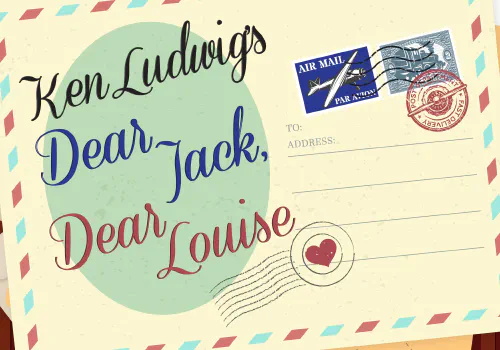Taking a Closer Look at Huck Finn

By Kathryn Neves
Big River is so entertaining and full of good ol’ American fun and catchy music that you’ll probably dance out of the theatre when you see it this summer. Its harmonicas, guitars, banjos, and swinging dance numbers will have you humming and whistling all summer long. And yet underneath this lighthearted, old fashioned fun lies something much more serious, and much more important. Big River, the musical adaptation of The Adventures of Huckleberry Finn, will ask you to take another look at one of today’s touchiest subjects—race.
It may be a fun, lighthearted romp, but Big River tackles some serious questions about race, prejudice, and tolerance. And within all of it is one detail that makes most people squirm in their seats. Just like the novel that came before it, Big River makes use of the abhorrent “N-word” a number of times. Granted, it’s not as prevalent in the musical as in the original novel by Mark Twain, but it can still be very uncomfortable to hear such a vile term used in the theatre. After all, no one uses the “N-word” in polite conversation today. It’s unthinkable; it’s an extremely ugly word. And that is why it’s so important to discuss it within the context of history and this musical.
Big River takes place in the 1830s and 40s—decades before slavery was abolished in the United States. Of course, Twain wrote the story nearly twenty years after Abraham Lincoln wrote the Emancipation Proclamation. But even so, Twain drew from his own experiences in writing the book. He was born in 1835, and he would have known all about the culture surrounding slavery and racism. It was a very normal thing for him. So when he wrote The Adventures of Huckleberry Finn, he used words and slang that came directly from his own experience.
It’s clear that racism was deeply ingrained in early nineteenth-century America, and in Twain’s novel. Even characters who are good and kind hearted speak of Jim and other slaves as wildly inferior. They, too, use the “N-word.” Uncle Silas says it, the kind woman Huck meets when dressed as a girl says it, and even Huck himself says it. Characters who we naturally want to sympathize with in this play use one of the worst words in the English language. It can be hard for us to fathom. After all, we live in a far different time than Huck and his friends. We have the benefit of many decades of progress; we have learned from heroes like Martin Luther King Jr. and Rosa Parks. But Mark Twain and his immortal characters never did.
Many of the characters who use the “N-word” in Big River do it without malice—they have no bad intentions. This does not excuse it; if anything, it only goes to show how deep-set racism was in the 1830s. It was a very common term in everyday usage; they used the word interchangeably with slave. As disgusting as it sounds, the racism and prejudices were hardwired into their brains. Our main character himself is a perfect example.
Despite his good heart and his friendship with Jim, we see Huck engage in acts of racism that we absolutely abhor today. When Huck first sets off with Jim on a raft floating down the Mississippi, he worries about his own soul. Huck honestly believes that he is sinning by helping Jim to escape slavery. While we regard Huck’s action as heroic, Huck thought he was in the wrong. He thought of Jim as someone else’s property, rather than a real friend. Huck’s statement—“All right, I’ll go to hell”— shows just how ingrained racist attitudes were at the time. It’s no wonder he found it so easy to use a word as horrible as the “N-word.”
Through his adventures with Jim, Huck learns what humanity really is. He learns that Jim is as much a person as he is. He learns that a human heart is a human heart, no matter what. Huck’s friendship with Jim grows and deepens as he learns that they are more alike than they are different. In the end, Huck changes. He learns to tolerate and accept others; he takes this lesson to heart and helps Jim to escape from slavery even at the risk of his own safety.
Many of the characters in Big River do and say things that would be absolutely repulsive today. Even so, it’s important for us to understand them and where they came from. Without acknowledging the mistakes of people like Uncle Silas and Huck, we are doomed to repeat them. In the end, we can choose to be like Huck. The only real danger is when we refuse to learn and progress. We all have to change and grow— only then will we ever have the tolerance and friendship that we see at the end of the play with Huck and Jim.









